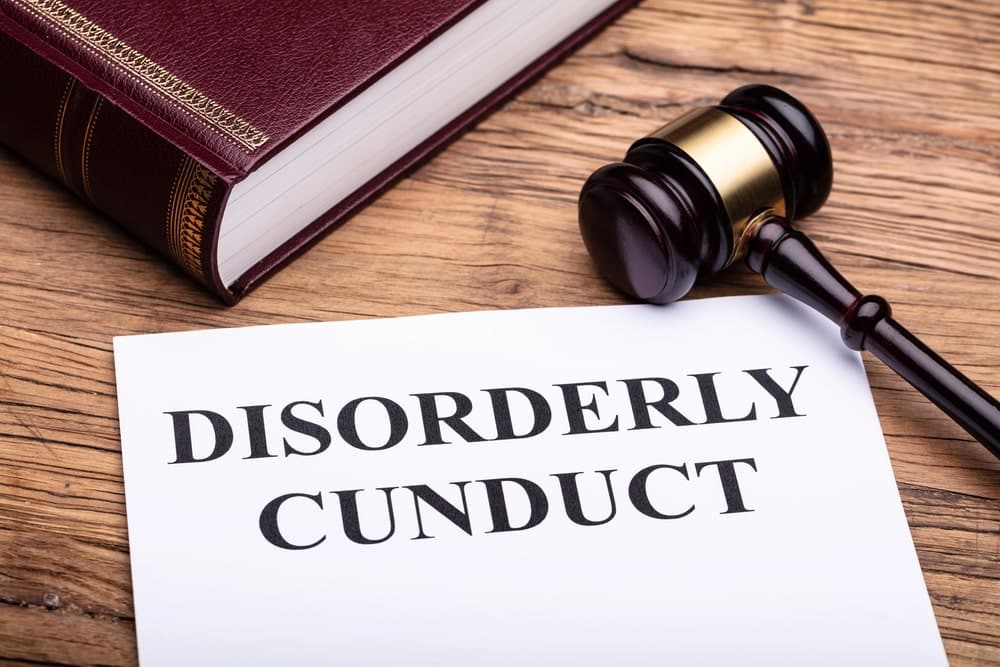You can break down most crimes commited into two broad categories: Property crimes, and violent crimes.
- Violent crimes are those that directly threaten actual people. They include crimes like murder, rape, robbery, and aggravated assault. Because they are directed at a person and are meant to harm that person, violent crimes are serious offenses, and carry stiff penalties.
- Property crimes, on the other hand, don’t involve a threat of violence. Instead, they deal with property either taken from someone else, or destroyed, or damaged in some way. Property crimes include burglary, larceny, motor vehicle theft, and arson. While these crimes can end up including violence in some form, harming someone else is not the object of these crimes – they are meant to inflict harm on property, instead, and so are called “property crimes.” Because these kinds of crimes don’t intend to hurt a person, penalties for property crimes are often less serious than those for violent crimes.
Call 207-571-8146 or contact us online to schedule a consult with one of our highly skilled criminal defense & OUI lawyers, serving Southern Maine, today.
Table of Contents
Are Property Crimes Common in Maine?
Property crimes are much, much more common than violent crimes. This may not seem like the case, if you watch the news, but remember that violent crimes are much more noteworthy than property crimes. A murder is often seen as a big deal. A burglary, not so much. Therefore, a local murder will make headlines in a newspaper, while a local burglary will be hidden in the Police Blotter section on page 12. In reality, according to a study done by the Muskie School of Public Service, 95.3% of crimes committed in Maine in 2012 were property crimes.
The penalties for property crimes range all over the place, from petty theft, a Class E misdemeanor, which can come with a maximum 180 days in jail, and a $1,000 fine, all the way up to arson, a Class A felony that carries up to 30 years in prison and a $25,000 fine. Many property crimes can also come with a restitution demand, which involves paying for the value of the property damaged, destroyed, or taken. Because each crime has its own set of unique penalties, we cover each one separately on our website. For more detailed information please click on the type of charge below.
If you are facing any of these charges, working with an experienced criminal defense attorney could be the key to successfully reducing or eliminating the penalties in your case.
Call 207-571-8146 or contact us online to schedule a consult with one of our highly skilled criminal defense & OUI lawyers, serving Southern Maine, today.
Can a store security guard forcibly detain and search me on suspicion of shoplifting?
Yes. Maine shoplifting laws allow a “merchant” to do this, including a security guard hired by the shop owner. The merchant may detain you for “a reasonable period not to exceed ½ hour.”
Can I be arrested for shoplifting for merely concealing an object in a shop without ever leaving the property?
Yes. All that is necessary to charge you with shoplifting is behavior that would indicate to a reasonable person that you intended to steal the item – you do not have to leave the store. Even changing price tags could get you arrested.
Which aggravating factors can elevate a theft charge to a Class B crime?
A Class B crime carries a possible prison sentence of 10 years and a fine of up to $20,000. Aggravating factors include:
- The value of the item(s) exceeds $10,000
- The item was a firearm or explosive device
- You were armed with a dangerous weapon at the time of the offense
Most theft charges revolve around low-value items and are typically charges as a Class E misdemeanor. However, Maine laws allow a prosecutor to charge you with a Class C felony if you have two prior convictions in 10 years for theft. That means your third shoplifting charge could be charged as a felony.
What is the statute of limitations and how does it apply?
The statute of limitations is the deadline by which a complaint must have been filed, an indictment must have been returned by a grand jury, or a formal criminal charge must have been filed. In Maine, the statute of limitations deadline is:
- Six years after commission of the offense for Class A, B and C crimes; and
- Three years after the commission of the offense for Class D and E crimes (including petty shoplifting).
- Certain crimes such as murder and Gross Sexual Assault against a child under 12 years of age have no statute of limitations, which means that the crime can be charged anytime after the event. For example: the state can allege that you murdered someone back in 1982 and charge you today, in 2018 with that murder because the statute of limitations does not apply in murder cases.
Call 207-571-8146 or contact us online to schedule a consult with one of our highly skilled criminal defense & OUI lawyers, serving Southern Maine, today.
What does the prosecutor have to prove to convict me of burglary?
He must prove the following legal elements of the crime, each beyond a reasonable doubt:
- You entered or secretly remained in a structure
- You knew that you had no legal right to be there
- You had the intent to commit a crime inside the structure
The prosecutor does not have to prove you stole anything.
What are the aggravating factors for burglary?
An aggravating factor for burglary is a circumstance that will cause the charge to be enhanced to a Class B crime (up to 10 years in prison). Any one of these factors will be sufficient:
- You carried a dangerous weapon or you knew that your accomplice carried one;
- You hurt or intended to hurt someone;
- The structure was a dwelling place; or
- You have two prior related convictions.
What are some of the possible defenses against property crime charges?
Many different defenses are possible under various circumstances. Some of the most common defenses include:
- Duress: You acted under compulsion or serious threat from another
- Mistake: You reasonably believed that the “stolen” item was your property
- Entrapment: See below
How does the entrapment defense work?
The entrapment defense arises when the police or another government agent induces you to commit a crime that you were not otherwise predisposed to commit. It would probably not apply, for example, to a “sting” operation against someone who had previously committed the same crime.
Call 207-571-8146 or contact us online to schedule a consult with one of our highly skilled criminal defense & OUI lawyers, serving Southern Maine, today.
Can I be convicted of arson for burning down my own tool shed?
Yes, you can if you did it to collect insurance proceeds, or if you recklessly endangered someone else or their property. Starting a fire on your own property might violate local law even if it doesn’t amount to arson.
Can the evidence against me be thrown out if it was seized during an illegal search?
Yes, it can be. This is called the exclusionary rule, and it is mandated by the federal constitution. The trick, however, is establishing that the search was illegal in the first place. If the police found stolen property on your person during a search, for example, the search wasn’t necessarily illegal even if it was conducted without a warrant.
What are the factors that can increase the severity of a charge of criminal mischief (vandalism)?
“Aggravating factors” include:
- The total damage exceeds $2,000;
- The offense caused a substantial disruption of public services;
- The vandalism was caused by starting a fire (that did not amount to arson);
- The conduct recklessly endangered human life; or
- The intent was malicious (designed to harm someone in particular).
If any of these factors are present, the offense becomes a Class C crime punishable by up to five years in prison.
Can I still be convicted if I confessed after the police failed to read me my rights?
Possibly. Although your confession might be thrown out as evidence, you could still be convicted if there is enough evidence to convict you without using your confession (a clear security camera video might be enough, for example).
Contact a property crimes defense lawyer in Maine
If you’re charged for committing a property crime, hiring a solid criminal defense attorney can be the best decision you can make. Trained to find holes in prosecutors’ cases and to challenge everything from facts to the law, criminal defense lawyers can go a long way towards preventing charges from turning into convictions. Attorney William T. Bly is one of the top criminal defense attorneys in Maine. His knowledge of the property crimes help him find the weakest aspects of the prosecutor’s case and take full advantage of it. Call us today or contact us directly online.
Call 207-571-8146 or contact us online to schedule a consult with one of our highly skilled criminal defense & OUI lawyers, serving Southern Maine, today.
Blog Posts

If you receive a traffic ticket in Maine, you may be facing far more than demerit points or an administrative penalty. You could be facing criminal sanctions and a permanent[...]

In Maine, disorderly conduct laws effectively make disturbing the peace a criminal offense. While disorderly conduct is considered one of the least serious offenses under Maine’s Criminal Statutes, it can[...]

Any criminal charge for a drug-related offense is a serious matter in Maine,but how consequential the outcomes can get may depend on whether the charge is filed at the state[...]


Self-defense laws in the U.S. are complex, vary from state to state, and are often misunderstood. “Stand your ground” laws allow an individual to use deadly force in self-defense in[...]

Every day in Maine, people are charged with crimes that they did and did not do. Fortunately, in the U.S., we have a justice system that says you’re innocent until[...]

Expungement is the practice of legally erasing or striking out documents or information relevant to criminal charges. It’s not possible to expunge a criminal record in Maine. However, other avenues[...]

If you have been arrested or are under investigation for a crime in Maine, it is crucial to retain the services of a competent and experienced criminal lawyer. A criminal[...]

Bail Code in Maine Title 15, Chapter 105 of the Maine Revised Statutes governs all issues pertaining to bail in Maine. When a defendant has been arrested and charged with[...]

In the span of less than 5 decades, computers have utterly transformed our society. Those of the baby boomer generation will be able to appreciate the scale of this transformation[...]


